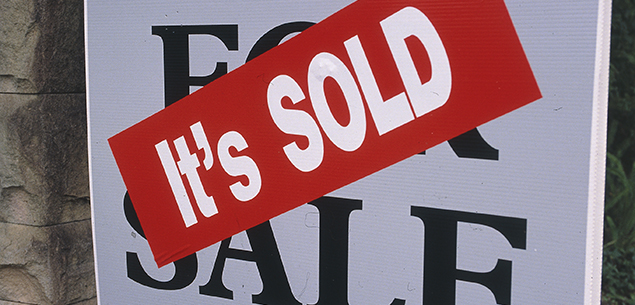Do real estate agents actually have an incentive to achieve a top price when selling your house? Should you be paying GST on your online overseas purchases? Read on to find out!
Q. We recently sold our house. The price we got was at the very low end of our expectations and at the very low end of what the agent told us she’d get for it. Yet the $20,000 fee we had to pay her had everything to do with the value of our property and nothing to do with her maximising the sale price on our behalf. Shouldn’t the fee structure be more about rewarding the sales people for getting the best price for the owner – and less about simply selling the house? Anyone can sell a house if the price is low enough.
A. This is a terrific question. Real estate sales people will tell you that they’re committed to getting the best possible price but what financial incentive is there for them to do that? Say you are told that your property is likely to sell between $600,000 and $650,000. Obviously, the extra $50,000 would mean a lot to you. But the difference in the commission might be roughly about $1250, depending on the contract.The sales people might get half of that – the rest going to their agency. So there’s only $625 in it for the sales people and that’s before tax. Why would they risk losing a sale and nearly $10,000 in commission in an attempt to maximise the sale price for you?
So yes, I do think the fee structure for real estate transactions should change. There should be much more reward for a top price. Real estate fees are not set by law and you can negotiate. This tends to be just a matter of haggling over what percentage you pay them in fees. How you’d get on asking for a restructuring of the salesperson’s payment, I’m not sure. I doubt you’d get far actually. What’s needed is a review at the top levels of the industry.
Q. I sometimes buy books and clothes from overseas on the internet. I notice that I don’t seem to have to pay any GST on these goods, whereas if I bought locally I’d have to. Am I supposed to declare this to the IRD? I’m happy not to pay but don’t want to be done for tax dodging.
A. I’m sure you’re fine. If you had been importing goods into the country that attracted GST or duty, customs would have held onto the goods until you paid up. Your books are fine because they don’t attract duty and no GST is payable on any imports worth less than $400 including shipping. Clothing attracts 10% duty but customs does not collect tariff duty and GST where the total payable (duty and GST) on any one importation is less than $60. In these cases, it’s not considered worth the cost of collecting the money.
So unless you’re importing really expensive clothes, you should be okay. How long it will be before we have to pay GST on goods bought overseas is a matter of current discussion. Local retailers and suppliers feel they are discriminated against because they have to charge GST whereas their overseas opposition doesn’t. This seems a fair point and I would imagine it won’t be too many years before the GST law is changed. In the meantime, any changes have been postponed.
Take a look at this article on investing here.
Do you have a question for Kevin? Email [email protected] (Subject line: Consumer) or post to: NZWW, Bauer Media, Private Bag 92512, Auckland 1036.
Image: bauersyndication.com.au




